Cherry trees safe for now as Vancouver watches effect of climate change on urban forest
'They do have a place in an urban forest that is well designed,' says tree expert
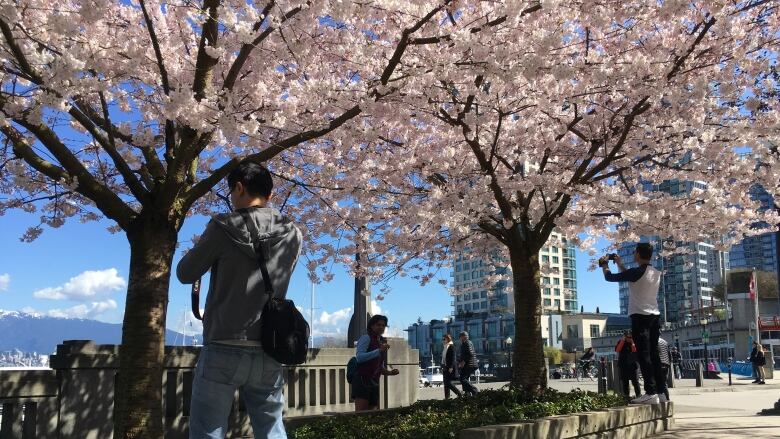
The City of Vancouver has no plans to stop planting cherry trees even though there'sconcern theiconic trees don't fare well in the warmer and drier weather conditions B.C. has faced in recent years.
The cherry trees, not native to the South Coast, are the runaway stars of spring with their pink blossoms.
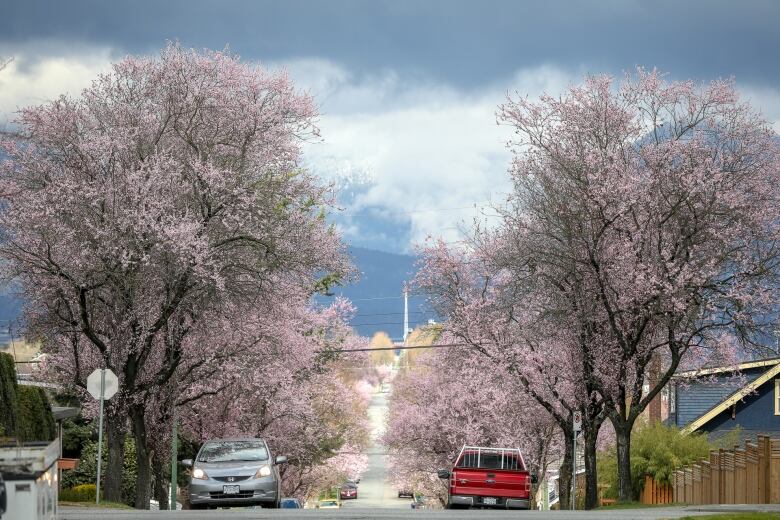
The City of Victoria angered some residents after it proposed replacingcherry trees when they die in favour of native species, whichmay be better able to cope with the effects of climate change.
But councillorseventually backed off the plan and arenow looking at keepingcherry trees as part of the city's landscape.
Amit Gandha, the supervisor of urban forestry for the Cityof Vancouver says there are around 20,000 cherry trees including 20 different varietiesplanted along roads or in parks in Vancouver.
The trees native to China, Japan, Korea and India and their blossoms are an obsession for some people, who try to locate and view all the different varieties.
"So it's almost a bit of like an Easter hunt for cherry blossoms," Gandhasaid.
"It's quite nice."
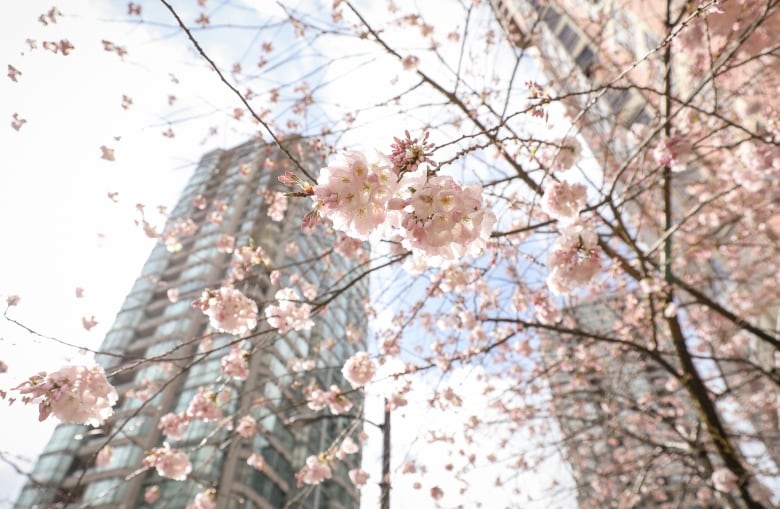
David Tracey, a tree expert who wrote the Vancouver Tree Book, says cherry treesare susceptibleto disease because they thrive in colder winters not our mild and wet climate. As well, they don't tolerate drought well and don't like to have their roots or branches cramped in dense urban environments,
"But they do have a place in an urban forest that is well designed," he said.
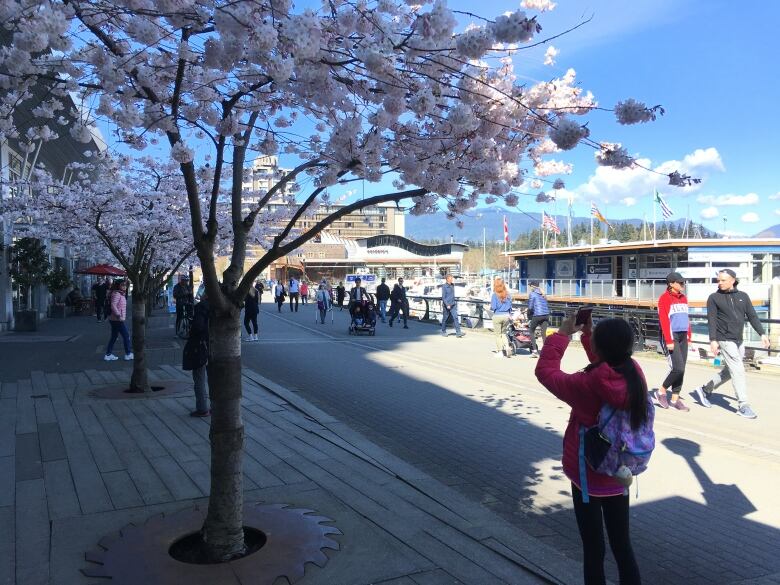
Gandhasaid Vancouver's plan with cherry trees is to replace thosethat die, or plant new onesin locations where they can be expected to do well.
'Doing fine right now'
"They're doing fine right now, so we're not too overly concerned but we'll continue to monitor them, but [they're] no different than other species that we have in the city as well," he said.
Part of the challenge isto determinewhat trees, or varietyof species,will thrive in Vancouver as construction and development reduces green space, and climate change alters the conditions treesexist in.
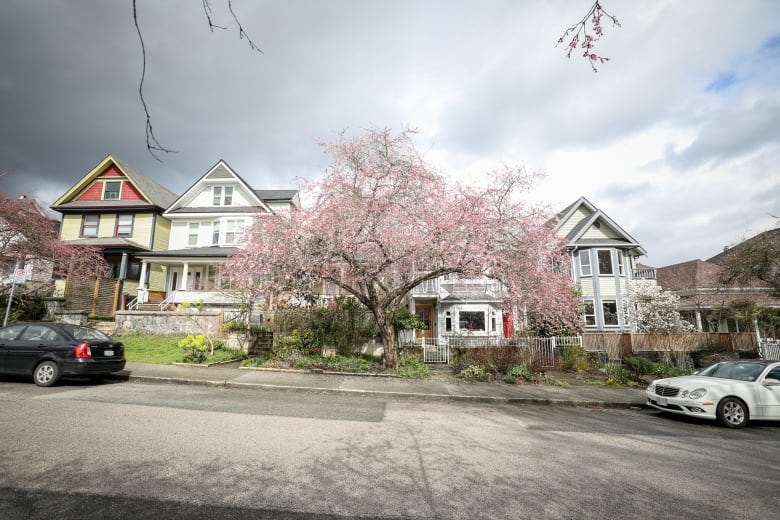
Ian MacLachlan,an expert in forest genetics andclimate with DiamondheadConsulting,helps cities likeVancouvermake urban forests resilient for the future.
MacLachlan,saidmany cities favour native species because they are proven to grow well, provide habitat for animals, insects and other plants.They also provide a strong cultural connection to the history of a place.
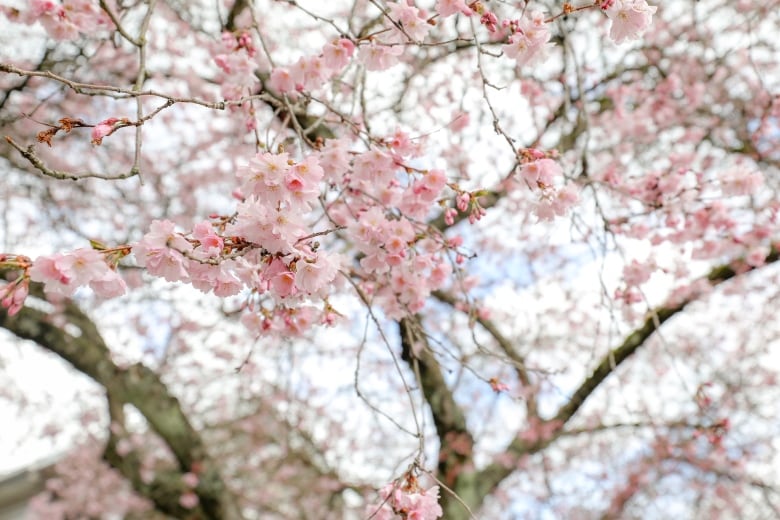
The trick with native species, he says,is to search for varietiesthat exist in other regions in hotter or drier conditions and plant them here so that they are better able to cope with future conditions.
Gandha says it will be similar for cherry trees in Vancouver as some of the 20 different varieties in the city may do better with climate change than others.












_(720p).jpg)


 OFFICIAL HD MUSIC VIDEO.jpg)
.jpg)



























































































